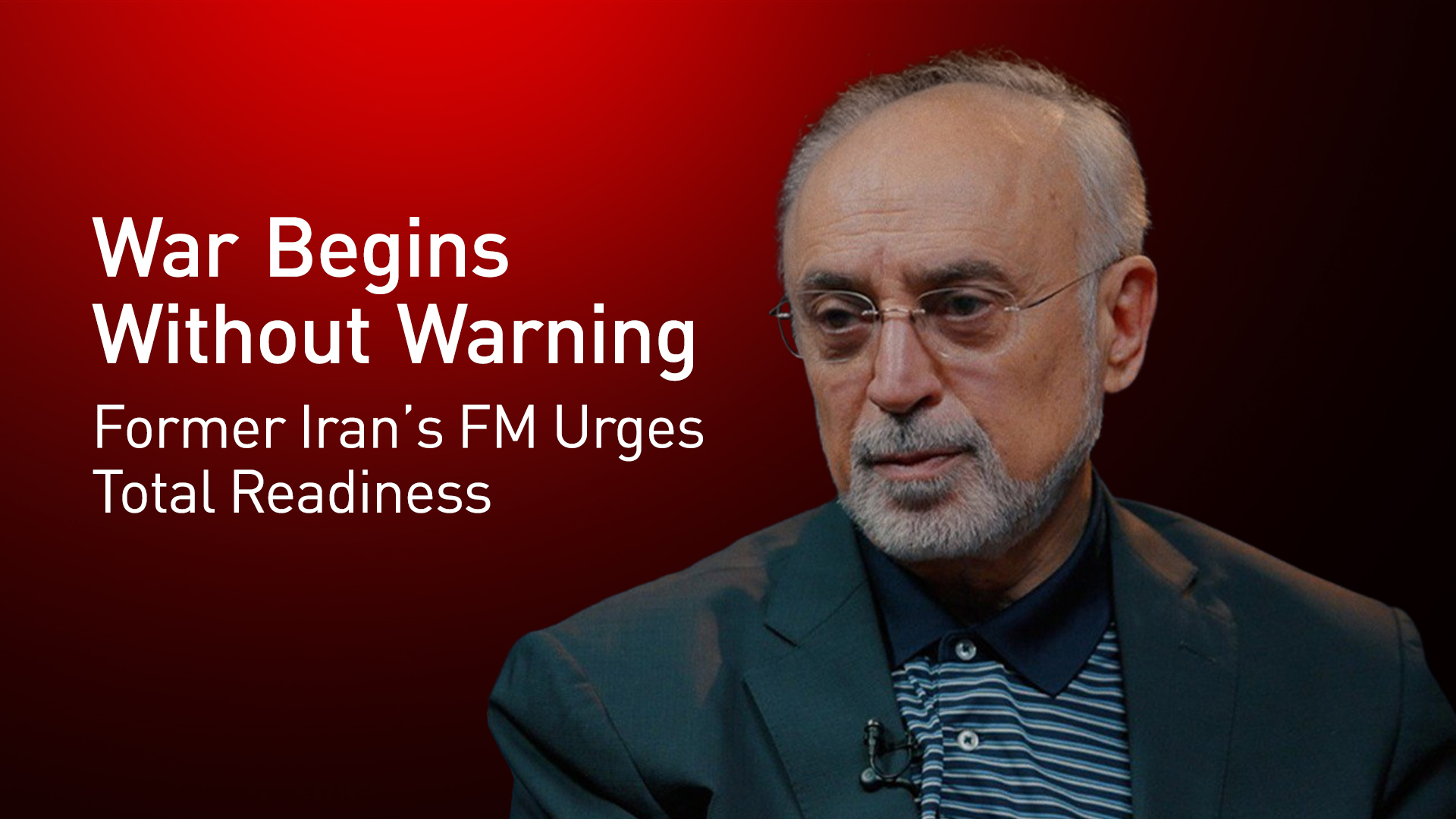‘Tomorrow Could Be the Day of War,’ Says Former Iran's FM
Ex-Iranian FM Ali Akbar Salehi warns of a sudden restart of war with the U.S. and Israel, urging full readiness. The warning follows a recent conflict, stalled talks, and defiant rhetoric from Tehran, which blames U.S. hostility for the escalating tensions.

ERBIL (Kurdistan24) – A former top Iranian diplomat has issued a stark warning that he anticipates a "sudden restart of military confrontation" between Iran, Israel, and the United States, calling on his country to maintain full readiness for any scenario in a climate of escalating tensions and recent direct conflict.
Ali Akbar Salehi, the former Foreign Minister of Iran and former head of the Atomic Energy Organization of Iran, made the remarks in an interview with the Seenergy program, a part of which was published in Jamaran News Website, signaling a belief that the risk of an undeclared, surprise conflict is high.
"In the current circumstances, we must assume that tomorrow could be the day of war," Salehi stated. "Ignoring this possibility is a major mistake, and suddenness is part of the nature of war, even if it is unjust."
Stressing that a surprise strike is an inseparable part of warfare, he added, "The side that is unaware is the one that is struck first. We cannot wait for the beating of drums to declare our readiness; we must always be on alert."
Salehi also called for tight coordination between Iran's political and military leadership, emphasizing that the armed forces must remain prepared regardless of diplomatic developments. "The armed forces must be in a state of full readiness. War does not begin with a declaration; rather, it begins in a sudden moment," he said.
The warning comes in the shadow of a major military escalation on Friday, June 13, 2025, when the Israeli army, utilizing warplanes and drones, attacked Iran, bombing its nuclear facilities and ballistic missile factories and killing a number of military leaders and nuclear scientists.
In response, Iran launched hundreds of ballistic missiles at Tel Aviv. While Israel's air defense intercepted the majority, some missiles landed, destroying several buildings and houses.
A Defiant Diplomatic and Military Posture
Salehi's comments reflect a broader, unified message of defiance from Tehran in the wake of the conflict and amid ongoing international pressure. Iran’s Foreign Minister Abbas Araghchi vowed on July 29 that any future military strikes would be met with a response so powerful it would be “IMPOSSIBLE to cover up.”
While admitting in a statement that Iran’s “enrichment facilities are severely damaged,” Araghchi insisted the nation’s “DETERMINATION IS NOT” broken and that Iran would not abandon its atomic work “simply because bullying foreigners demand it.”
This sentiment is echoed by Iran’s military leadership. General Majid Khademi, the head of the Islamic Revolutionary Guard Corps (IRGC) Intelligence Organization, issued a direct warning to European powers on July 28 regarding threats to reinstate UN sanctions via the "snapback mechanism."
"If the Europeans decide to take such actions, we have countermeasures that we can effectively utilize, and they will be the main losers in this affair," Khademi stated, as quoted by IRIB News Agency.
Diplomatic Avenues Seen as Blocked
The hardline military posture is mirrored by a deep diplomatic freeze, with Iranian officials expressing profound skepticism toward negotiations with Western powers.
On Thursday, the Iranian government fiercely condemned a new round of U.S. sanctions targeting its energy sector, with Foreign Ministry spokesperson Esmaeil Baqaei calling the measures a "blatant assault" and "clear evidence of the hostility of American decision-makers towards the Iranian people."
This distrust extends to European nations. Ebrahim Azizi, head of the Iranian Parliament’s National Security and Foreign Policy Commission, accused European countries on Thursday of having “nothing to offer” in diplomatic talks.
"Their actions in recent years have shown they have merely followed the American line," Azizi told ILNA News Agency. "In fact, they have provided no benefit to the Islamic Republic of Iran and played no effective role."
Ideological Underpinnings of the Conflict
Iran’s Supreme Leader Ali Khamenei has framed the standoff as an ideological struggle, accusing global powers of using nuclear concerns and human rights as "nothing but a pretext." In a speech on July 29, Khamenei claimed the true source of hostility is fear of Iran’s progress.
"The root cause of hostility from arrogant powers, especially the United States, lies in their fear of Iran’s ideological foundation and scientific progress under Islamic principles," he declared.
Reflecting on the 12-Day War, Khamenei asserted that the conflict forced global actors to "acknowledge Iran’s power and the will of its people," arguing that Iran’s model of merging religious faith with scientific innovation has unsettled its adversaries.
This combination of a recent, direct military conflict, stalled diplomacy, and unwavering defiance from all levels of Iran’s leadership has created a highly combustible environment where a warning of a sudden, undeclared war from a figure like Ali Akbar Salehi carries significant weight.
